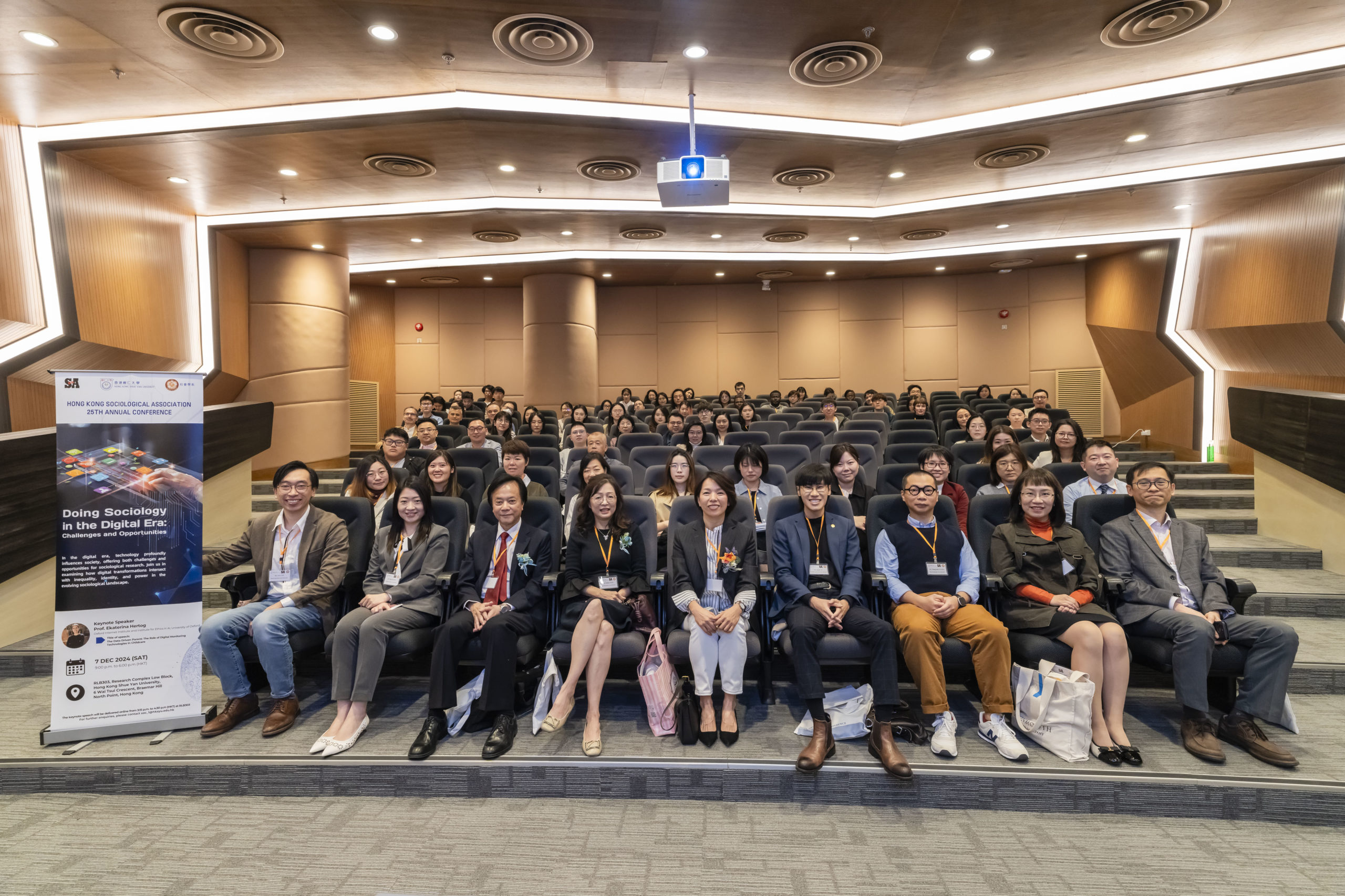Hong Kong Shue Yan University (HKSYU) proudly hosted the 25th Annual Conference of the Hong Kong Sociological Association on December 7, 2024, featuring nearly 30 program sessions with over 100 presenters, top sociologists, professionals, and postgraduate students from Hong Kong and around the world.
This conference, the most significant annual event of Hong Kong Sociological Association, offered a platform for participants to critically examine societal dynamics, share insights, and foster interdisciplinary collaboration under the theme “Doing Sociology in the Digital Era: Challenges and Opportunities.”
After the welcoming remarks given by Professor CHEUNG Yuet-wah, the Head of Sociology Department of HKSYU, Professor Selina CHAN Ching, Academic Vice President of HKSYU and Professor Susanne CHOI Yuk-ping, HKSA Council President, the Plenary Panel, titled “Sociological Research and Policy Impacts in Contentious Times,” was kicked off. This panel was intended to honour Professor CHEUNG Yuet-wah’s lifetime contribution to research on substance abuse and related policies in Hong Kong.
In addition to Professor CHEUNG, Professor Anita KOO from Hong Kong Baptist University also shared her challenges in handling her socially impactful but politically risky education project about underprivileged children in China, while Professor SUEN Yiu-tung from the Chinese University of Hong Kong discussed how his research affects the LGBT court results in Hong Kong by providing evidence through empirical studies.
The follow-up morning panel sessions further explored the intricate relationships between society and digital technology, as well as their new opportunities and threats.
For example, Professor Eric FONG from the University of Hong Kong chaired a session focusing on pressing and controversial contemporary issues in digital sociology. In this session, Professor ZHAO Yizhang of Tsinghua University discussed the development of digital sociology in mainland China, while Dr Holy SHUM Hoi-ki from Shue Yan illustrated the economic, cultural, and social values of technology-empowered Art-Tech workers in Hong Kong. WANG Yi from Beijing Normal University–Hong Kong Baptist University United International College demonstrated how female strength and beauty were redefined through body and identity under the influence of digital media. Dr GAO Chong of Shue Yan organized a special panel session to explore how digitalization has created new imagination and possibilities for sociological research. For example, Dr Gigi LAM of Shue Yan discussed her recent studies on e-sports. Dr HUANG Wei-shan of Shue Yan demonstrated how new religious practices and interpretations have taken place due to the popularity of social media. Dr Veronica MAK Sau-wa from Shue Yan, on the other hand, illustrated the role of platform-empowered actors in the conservation of agricultural heritage and new possibilities for conducting research.
The keynote speech delivered in the afternoon by Professor Ekaterina HERTOG from the University of Oxford brought the conference to a climax. In her speech, titled “The Data Driven Parent: The Role of Digital Monitoring Technologies in Childcare,” Professor HERTOG’s study showed that these monitoring apps have profound effects on modern parenting, children’s autonomy and development, and intra-family relations and trust. Additionally, these technologies operate within the social structures that circumscribe and constrain families.
As the responsibility of sociologists is to advocate for ethical practices, inclusivity and the equitable distribution of technology’s benefits, the afternoon panel sessions focused more on the inequality, injustice and new challenges due to digital technology.
For example, a big topic on the impact of AI and digital technology upon labour monitoring has been explored. Professor Tarani CHANDOLA, Chairperson of the Sociology Department at HKU, presented his team’s findings on how algorithms lead to dehumanization of the Chinese Couriers, affecting their health and wellbeing. Surprisingly, the work of Professor TIAN Xiaoli from the University of Hong Kong showed that the use of the working monitoring app was not only welcomed by the management but also the middle-class workers for different reasons. How digital technology has been shaping social injustice on racism and aging are also discussed in another panel, titled“ Migration and Ethnic Minorities.”
The benefits of digital technologies have been distributed differently among different social classes. For example, Stefan KUHNER and Celia CHEN Xi from Lingnan University have conducted a cross-national study and found digital inequalities happened among children from different social classes around the world during COVID-19.
On the other hand, DING Xiangying and Janet LEUNG from the Hong Kong Polytechnic University found that digital technology can bring benefits, as higher marital satisfaction in both fathers and mothers was correlated with less young children’s problematic media use via more mothers’ digital parenting. Lastly, a special panel was dedicated to how new digital technological research tools have opened up new research topics and ways to conduct social research and data analysis. For example, TAN Qiang and LEE Jaemin from the Chinese University of Hong Kong has quantified rhetorical nationalism in Chinese Cyberspace through Multilevel Word Embeddings. ZHANG Ruiyu and colleagues from the Chinese University of Hong Kong looked into how AI can enhance text analysis and causal inference in NGOs’ Political Engagement. YUNCG Qi-xuan and colleagues from Lingnan University also studied how AI- powered content analysis can be used in enhancing the analysing of public opinion on Senior Housing in Macau.
All staff in the sociology department helped to chair the different panel sessions. The finale of the conference was a delicious seafood dinner celebrating the successful completion of the conference.
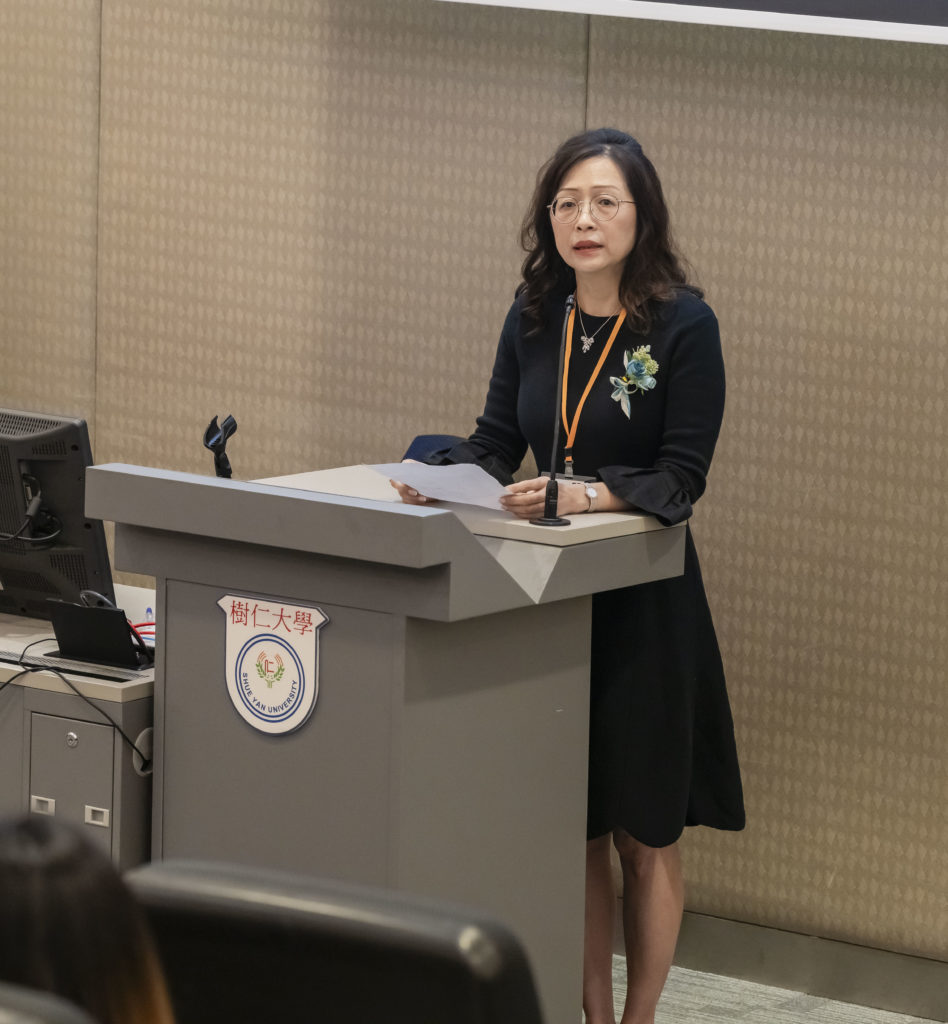
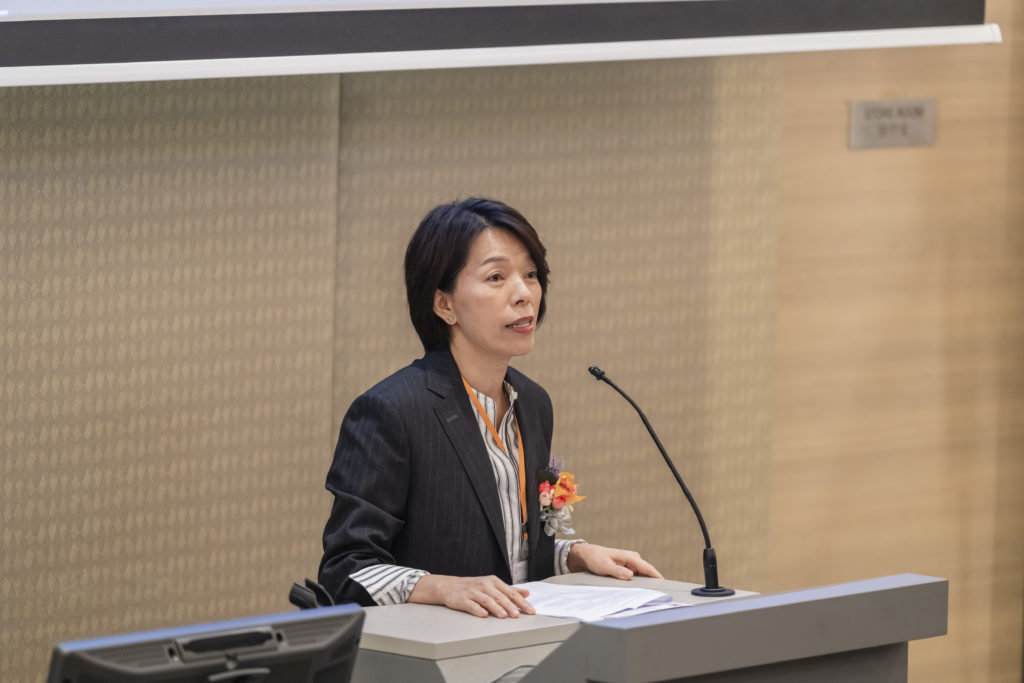
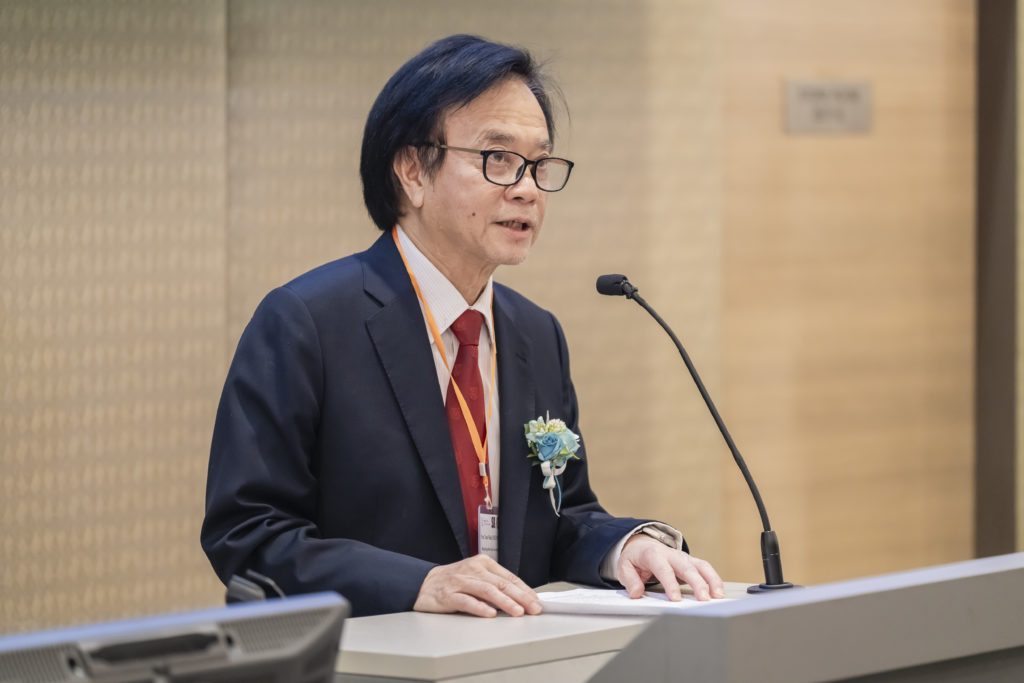
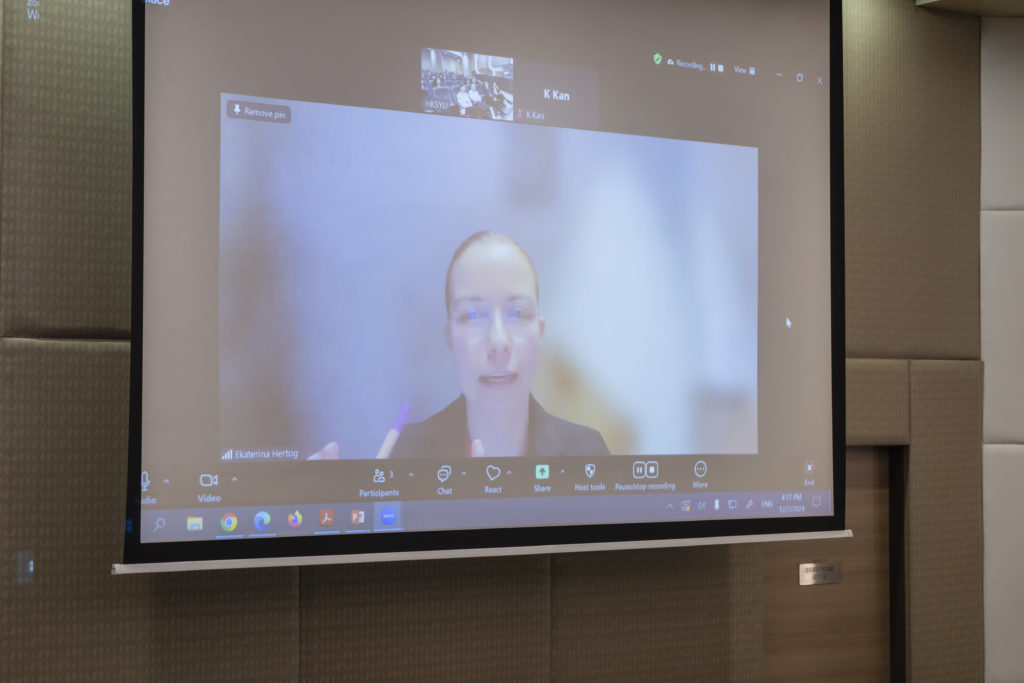
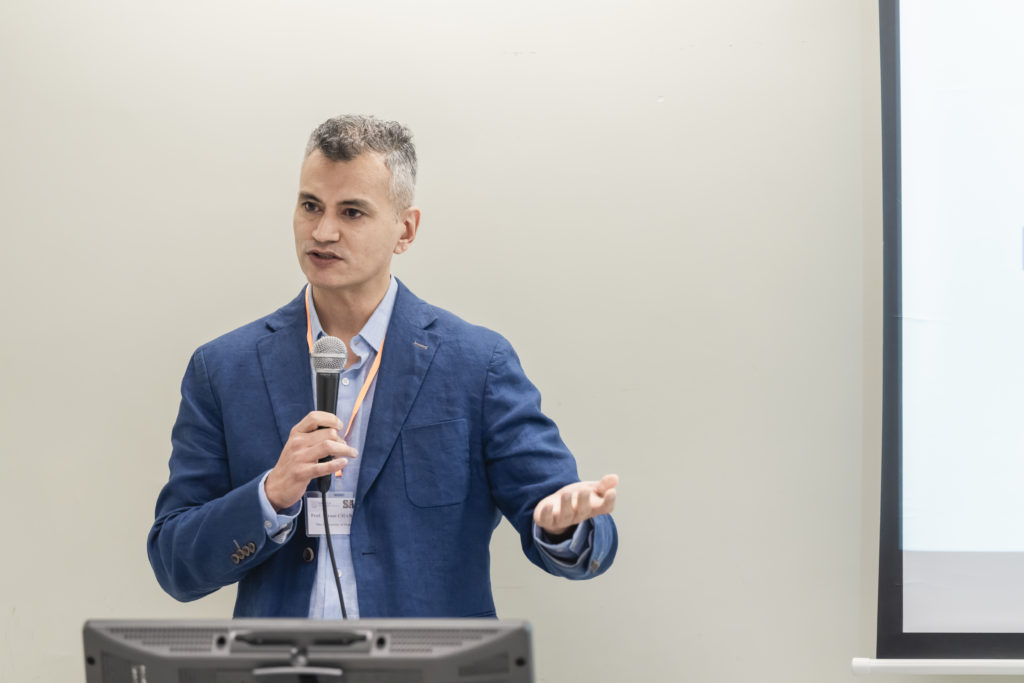
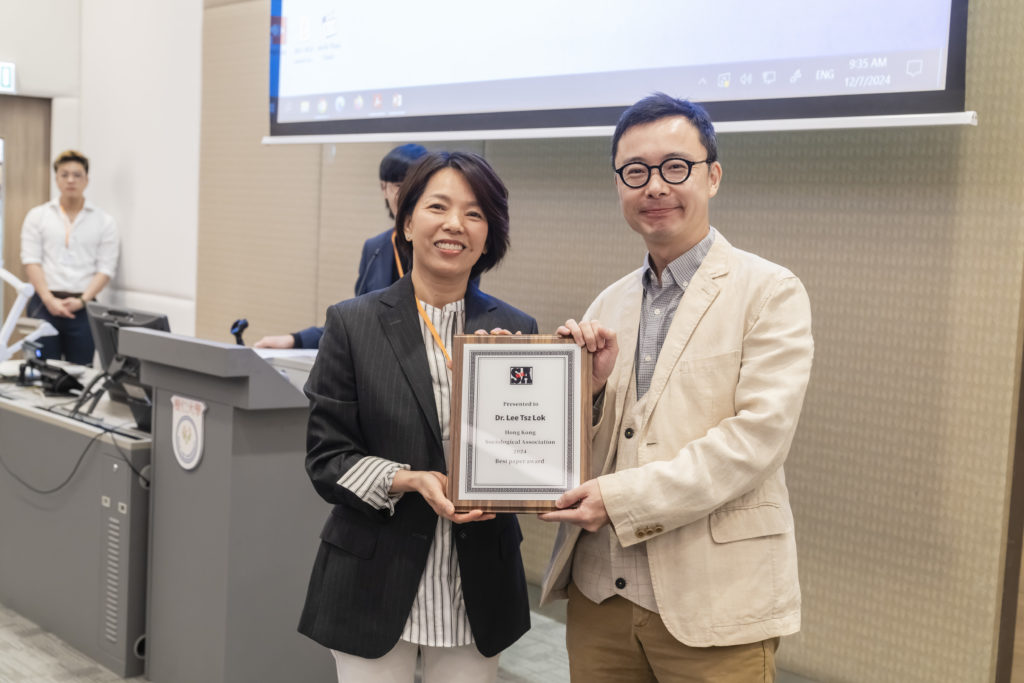
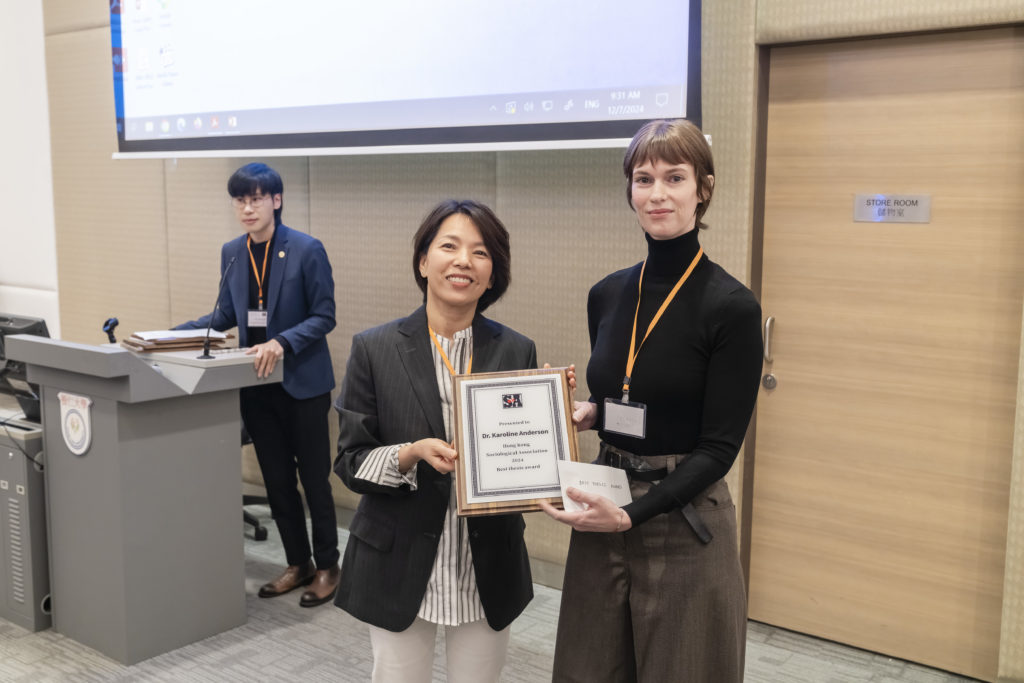
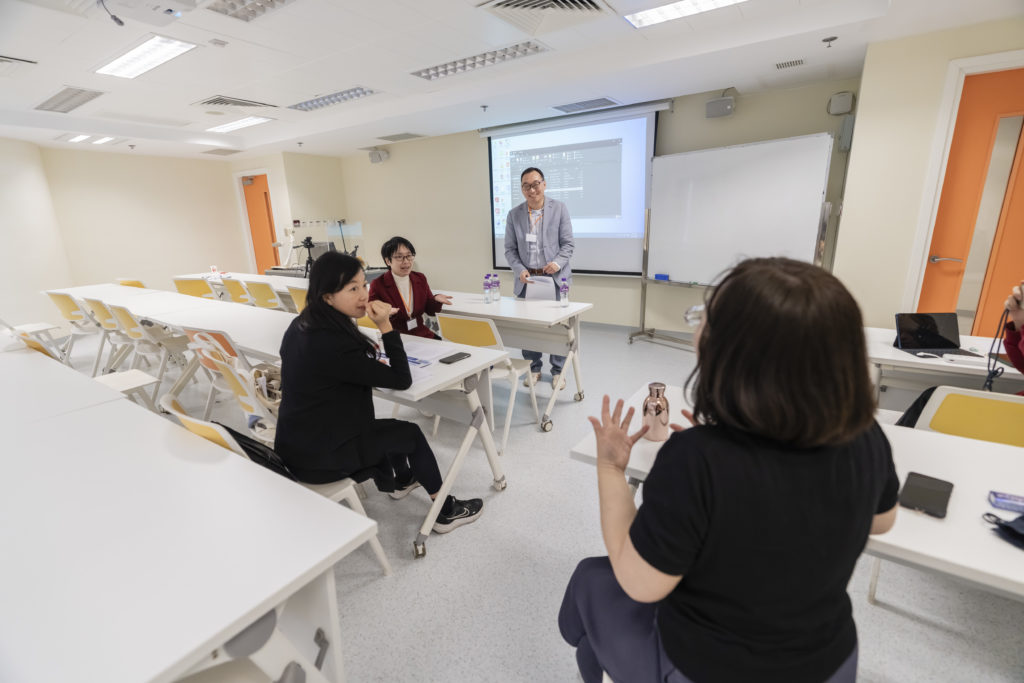
Source: April 2025 Issue
